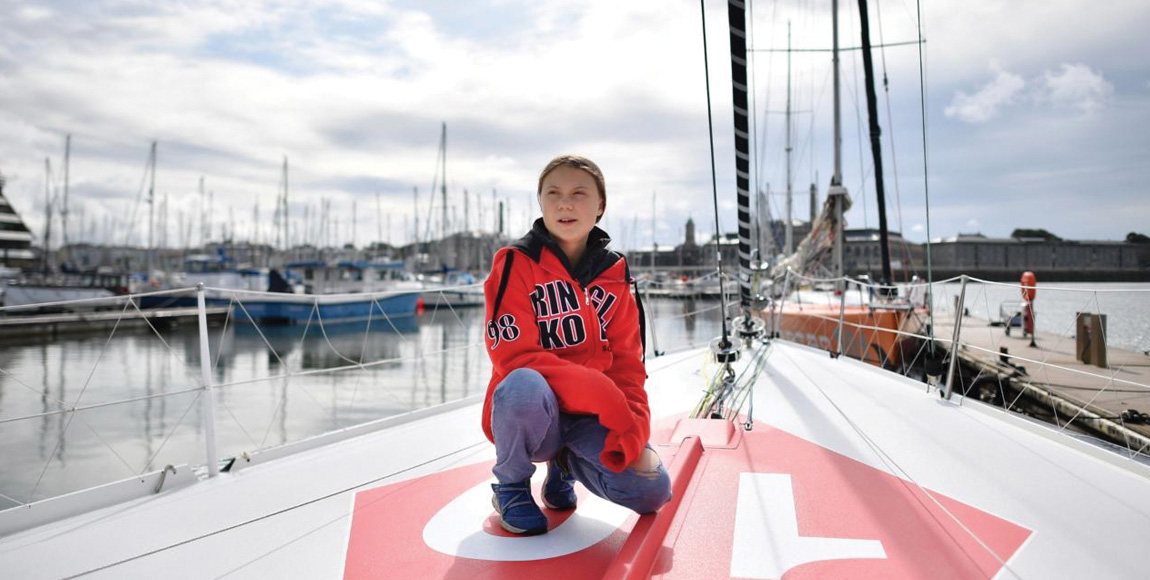Greta and the professor

Over the years, through mismanagement and neglect, South Africa has allowed its public-transport services to waste away. So, what’s that got to do with Greta and the professor? VAUGHAN MOSTERT explains
Most people have probably heard of Greta Thunberg, the 16-year-old climate activist from Sweden, who has been skipping school on Fridays. She pops up at international forums, such as the World Economic Forum, to warn us of impending climate catastrophe. She has even met the Pope and has written a little book, titled No One is Too Small to Make a Difference. A few months ago, she sailed across the Atlantic to New York in a yacht to address the United Nations.
Not everyone supports her views – indeed strong opposition to them is inevitable when so many industries are dependent on the status quo for their existence.
One particular criticism of her, however, appears astonishing. It could have originated from the boss of a coal mine, but instead came from an academic. It was published in the London Sunday Times of September 1, written by Professor Niall Ferguson, a historian at Stanford, the number two university in the United States.
Ferguson starts his attack by reminding us that 600 years ago children were sacrificed to the gods. Now the roles have been reversed, he argues. Children are demanding sacrifices from us! What a cheek they have!
It then gets personal: “The pigtails … the unsmiling stare … she has struggled with mental-health conditions … and obsessive-compulsive disorder.” Ferguson quotes from page 24 of her book: “I want you to panic. I want you to feel the fear I feel every day.” He suggests that this is not the “voice of science” but rather the voice of a “millenarian cult leader”.
He has a point – Greta admits that she has Asperger’s syndrome – but then I would like to ask the professor exactly what the “voice of science” has to say on the topic.
I don’t share his complacent view that “we shall adapt, taking advantage of technological innovations that will gradually improve how we generate and store electrical power and ward off flood waters”. I’ve heard all that before. My problem is his use of the word “gradually”, which, in my opinion, is code for “do nothing”.
I was a year younger than Greta when I wrote my first letter to a newspaper editor, in 1963. It was a criticism of the Durban City Council’s decision to scrap its trolleybus fleet. To cut a long story short, that letter was ignored, although I seem to recall people dismissively saying “stick around kid, and wait for batteries to improve”.
Nearly six decades later, I’m still “gradually” waiting. Not only have we “gradually” done nothing – we have allowed public transport to waste away by mismanagement and neglect. In the meanwhile we have built a great deal of new infrastructure that is not going to cope very well with the energy problems that lie ahead.
Unlike Greta, I care little about greenhouse emissions or climate change. I would rather write about the way we waste energy in transport due to the underperformance of public transport and the resulting over-reliance on cars. So, I’ll leave Greta and other teenagers worldwide to sort it out with people like the professor.
I would rather focus on what the academic world needs to do about how it teaches public transport. Every university – Stanford could consider taking the lead here – should prescribe a textbook called Transport Revolutions, written in 2010 by two Canadian researchers Gilbert and Perl.
To the best of my knowledge, it is the only book written so far that spells out in sufficient detail how major world players should respond to the coming scarcity and cost of energy in all its forms. By responding to their suggestions now, we will avoid problems later.
Viewpoints in the book could be applied to a wide range of disciplines, including the arts. It is as close to the “voice of science” as anything I have read and, despite being 10 years old, belongs on every MBA programme. If it isn’t there, I’d like to know why not. I prescribed it for my undergraduate class at the University of Johannesburg in 2012/13, but it was removed after I retired.
We shall adapt! We shall adapt! Yeah, right, like the frog in the pot of boiling water…
Published by
Vaughan Mostert
focusmagsa




